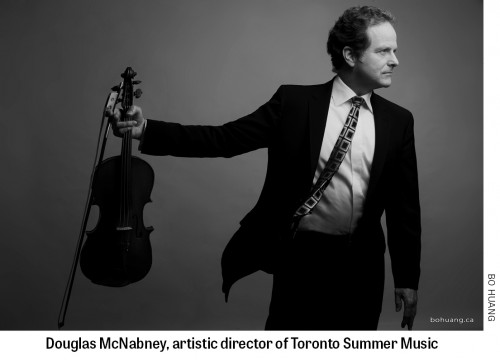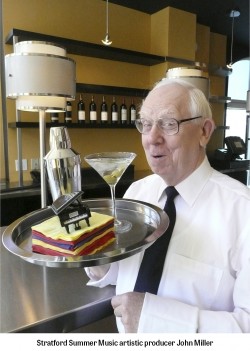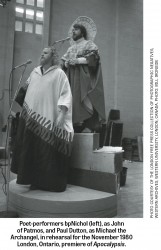 In an article that will be featured in the forthcoming summer issue of the Canadian Music Centre’s digital magazine, Notations, composer John Beckwith writes about how, late in 2013, John French, director of the Brookside Music Association in Midland, invited him to compose a piece to be performed in July 2015, marking “the 400th anniversary of the voyage of Samuel de Champlain and a few fellow adventurers from France to the ‘Mer douce’ or ‘Fresh-water sea’—today’s Lake Huron. I said yes,” says Beckwith. The Ontario Arts Council approved the commission, and, effectively, that’s where the story of Wendake/Huronia, as the work is titled, begins.
In an article that will be featured in the forthcoming summer issue of the Canadian Music Centre’s digital magazine, Notations, composer John Beckwith writes about how, late in 2013, John French, director of the Brookside Music Association in Midland, invited him to compose a piece to be performed in July 2015, marking “the 400th anniversary of the voyage of Samuel de Champlain and a few fellow adventurers from France to the ‘Mer douce’ or ‘Fresh-water sea’—today’s Lake Huron. I said yes,” says Beckwith. The Ontario Arts Council approved the commission, and, effectively, that’s where the story of Wendake/Huronia, as the work is titled, begins.
Brookside’s John French first described the undertaking to me back in April: “The new work will be performed by a chamber choir, the Brookside Festival Chorus, comprised of members of regional choirs, a pair of First Nations drummers, Shirley Hay and Marilyn George, Laura Pudwell, alto, and Theodore Baerg, narrator, accompanied by the Toronto Consort under the direction of David Fallis. It’s a 30-minute work in six movements, reflecting on the Wendat culture from pre-European contact to the present day and ending with a prayer for reconciliation between the two cultures. It will be presented in a tour of Georgian Bay communities including Midland, Parry Sound (as part of the Festival of the Sound), Barrie and Meaford and potentially others.”






